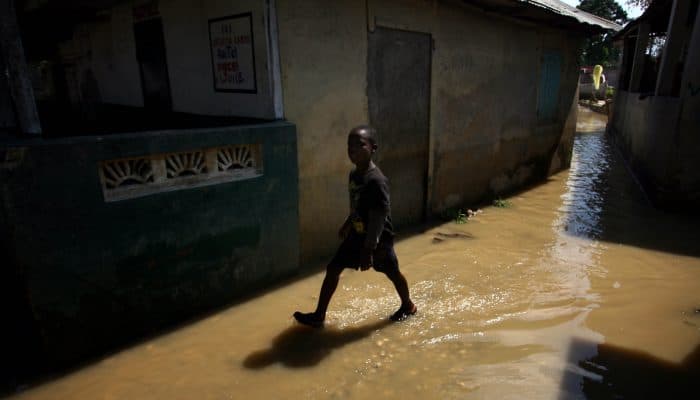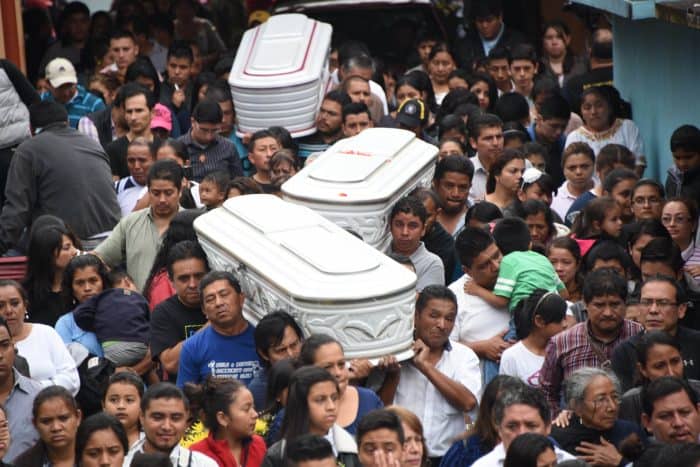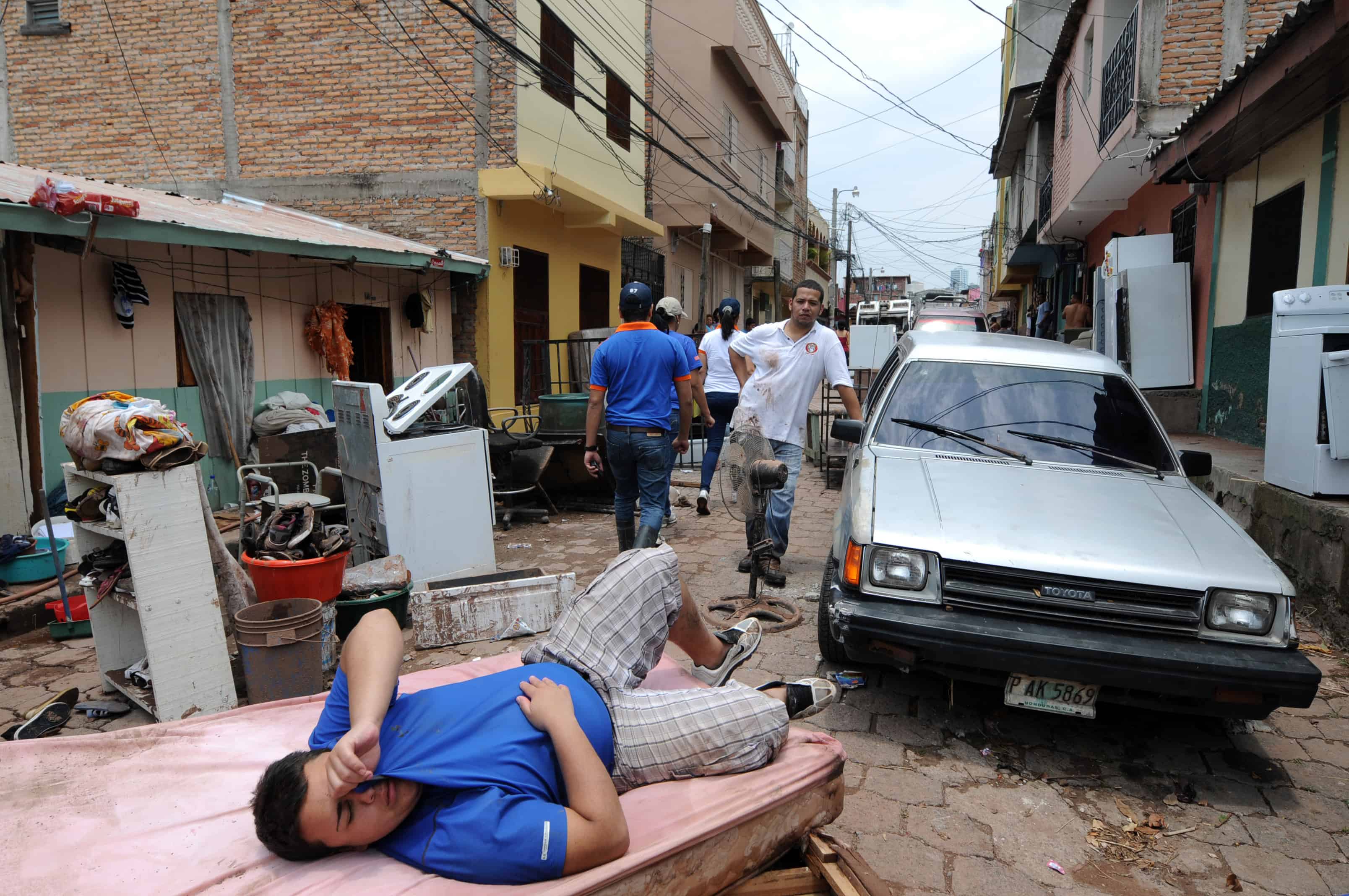LE BOURGET, France – Honduras, Myanmar and Haiti top a new list of nations hardest hit by two decades of storms, floods and landslides that killed more than half a million people, climate analysts reported Thursday, warning of more frequent disasters if Earth’s overheating cannot be tamed.
Scientists point to the mounting threat from storms, floods, droughts and rising seas if mankind cannot brake emissions of heat-trapping greenhouse gases, especially from fossil fuels.
A red flag to negotiators from 195 countries trying to broker a global climate-saving pact in Paris, the Bonn-based advocacy group Germanwatch released the 2016 Global Climate Risk Index showing those nations most affected by the direct consequences of extreme weather events.
Honduras, Myanmar and Haiti were the most afflicted by such disasters between 1995 and 2014, said the latest edition of the annual index. Next were the Philippines, Nicaragua, Bangladesh, Vietnam, Pakistan, Thailand and Guatemala.
Altogether, more than 525,000 people died as a direct result of about 15,000 extreme weather events, the report said. Losses amounted to more than $2.97 trillion, it said.
Honduras tops the list partly because it is in the Central American hurricane belt.
Although Honduras endured fewer extreme events than the Philippines, Bangladesh and some other disaster-prone nations, its financial losses as a percentage of its national economy were the highest.

More severe events ahead
The analysis only looked at the direct results of extreme weather, it stressed, whereas the indirect consequences of extreme weather such as drought and famine resulting from heatwaves can be much more deadly.
It shows only one piece of the puzzle and is not a comprehensive index of vulnerability to climate change, researchers stressed. For example, the study does not take into account sea-level rise, glacier melting or more acidic and warmer seas. A growing body of research connects global warming and extreme weather, Germanwatch said.
“The Climate Risk Index thus indicates a level of exposure and vulnerability to extreme events that countries should understand as a warning to be prepared for more frequent and/or more severe events in the future,” the report said.
Germanwatch urged negotiators at the U.N. climate conference underway in Le Bourget, outside Paris, to reach a universal deal to avert a climate catastrophe.
“Paris needs to deliver a far-reaching and durable climate regime that safeguards affected populations,” it warned.
Participants said the talks were progressing only slowly, though. After three days of haggling over a hugely complex 54-page draft pact, bureaucrats unveiled a document just four pages shorter and with vast stretches of text yet to be agreed.
Looking at 2014 alone, the Germanwatch study showed Serbia, Afghanistan and Bosnia suffered most from extreme weather events.
They were followed by the Philippines, Pakistan, Bulgaria, Nepal, Burundi, Bolivia and India.
Most of the countries who made it in the top 10 for extreme weather in 2014 had suffered “exceptional catastrophes,” Germanwatch said.
But “over the last few years another category of countries has been gaining relevance: countries that are recurrently affected by catastrophes such as the Philippines and Pakistan,” it said.
Tolls from disasters are also affected by development strategies, such as population growth in vulnerable areas and protection against extreme events, experts warn.








